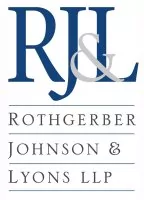In an attempt to provide uniformity for various provisions of the Internal Revenue Code (the Code), the Working Families Tax Relief Act of 2004 (the Act) amended the definition of "dependent" for tax purposes. As is the case with many new laws, this amendment has unintended consequences that may create issues for sponsors of certain types of employee benefit plans. The new definition is effective for tax years beginning after December 31, 2004. Employers should take action now to evaluate the definitions of "dependent" in their plans to determine what, if any, document or administration changes are needed.
The New Definition
Beginning in 2005, a "dependent" is either a "qualifying child" or a "qualifying relative." Generally, a "qualifying child" is: (a) a child (including stepchild, adopted child, or eligible foster child), or a sibling (or stepsibling) of the taxpayer, or a descendant of either; (b) has resided in the principal abode of the taxpayer for more than half of the relevant calendar year; (c) has not attained age 19 (or is a student who has not attained age 24 as of the end of the year); and (d) has not provided more than half of his or her support for that year. A child who does not satisfy the qualifying child definition may be a "qualifying relative."
Generally, a "qualifying relative" is an individual who: (a) is a child (including stepchild, adopted child, or eligible foster child), a sibling (including stepsiblings), the taxpayer's father or mother or an ancestor of either of them, a stepparent, a niece or nephew, an aunt or uncle, certain in-laws of the taxpayer, or an individual, other than a spouse, who resides in the principal abode of the taxpayer and is a member of the household; (b) has gross income in the relevant calendar year not exceeding the exemption amount ($3,200 for 2005); (c) receives more than half of his or her support for the year from the taxpayer; and (d) is not a qualifying child of any other taxpayer for the calendar year.
Impact on Employee Benefit Plans
A significant impact of the amendment is that the definition of "qualifying relative" essentially precludes any individual, other than a taxpayer's qualifying child, who has income in excess of the exemption amount ($3,200 in 2005) from being a dependent for many tax purposes. As a result, the tax-favored treatment of certain employee benefits for some individuals who met the prior definition of dependent, such as some domestic partners or nonstudent children over age 19, may no longer be available. In addition, if an employee benefit plan defines eligibility for coverage by incorporating the Code definition of "dependent" by reference, these individuals will no longer be eligible to participate unless the plan's eligibility provision is amended.
There is some good news, however. The Act includes a conforming amendment that provides that the income limitation will not prevent an individual from meeting the "dependent" definition for purposes of tax-free medical expense reimbursement. The IRS has also provided similar relief for purposes of the exclusion from income for employer-provided health coverage, health flexible spending accounts, and health reimbursement arrangements. The IRS has indicated that the regulations will be revised to confirm this result. In the meantime, employers may rely on IRS guidance when providing group health benefits to dependents. Therefore, if an employer's health plans do not incorporate the Code definition of "dependent" by reference, individuals who would satisfy the definition except for the income limitation may continue to participate on a tax-favored basis.
Unfortunately, other tax provisions governing employee benefits that reference the Code definition of "dependent" are impacted by the change and, to date, no relief has been provided. The tax treatment of dependent care assistance programs, health savings account withdrawals for a dependent's qualified medical expenses, and unforeseeable emergency withdrawals from 457(b) plans and 409A plans are all impacted by the new definition. The Tax Technical Corrections Act of 2004 that was introduced in Congress might exclude the income limitation for these benefits as well, but it was not enacted before the effective date of change.
Practical Application
Because relief has been provided for employer-provided health coverage and reimbursement of medical expenses, employers should be able to continue to cover the same individuals who were eligible under their group health plans prior to the change without having to impute income to any employees. However, this is the result only if the plans' eligibility provisions do not incorporate the Code definition of "dependent" by reference. Other benefit plans, such as 401(k) plans and dependent care assistance plans, need to be reviewed to determine the potential impact of the changed definition. Other documents, such as plan documents, summary plan descriptions, insurance contracts, enrollment materials, administration forms, and procedures, may need to be revised to accurately define "dependents" for purposes of the specific benefit. Finally, employers should alert employees of any impact to their benefits as a result of the changed definition.
Sandy Murphy is special counsel in RJ&L's Denver office where she practices in the area of employee benefits planning, compliance, and administration. She assists employers with all types of pension and welfare benefits plan issues involving fiduciary responsibility, plan administration, benefit claims, and federal and state tax and labor law consequences. Ms. Murphy helps clients ensure that they maximize tax benefits while complying with the many laws and regulations surrounding benefit plan administration.
The content of this article is intended to provide a general guide to the subject matter. Specialist advice should be sought about your specific circumstances.


